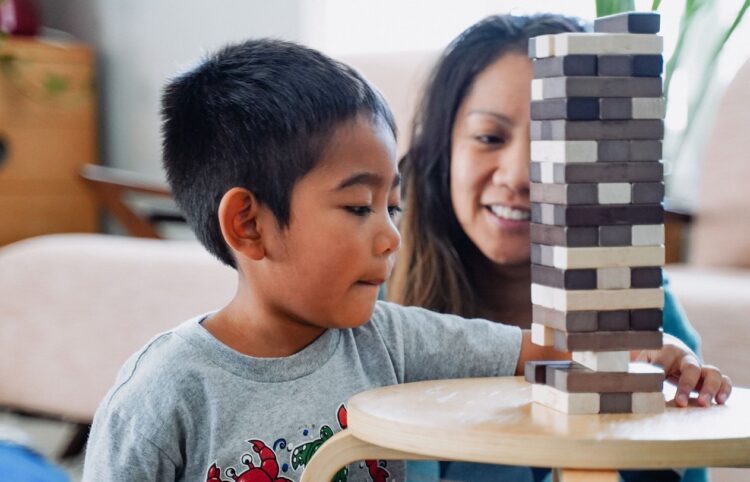
We were all children once and the experience of growing up varied for all of us. As kids, we worried or were afraid of different things, and we also looked forward to different excitements. Naturally, everything was, and still is, shaped by our personalities, culture, environment, etc.
Yet, at least in some aspects as kids we were very similar. We probably all hated doing homework, fulfilling obligations and duties, collecting all those toys after the play, or simply helping our parents and grandparents with household activities. Just remember all those hard moments when parents did not allow us to eat sweets or play computer games before we gather our toys or the wardrobe we scattered around the room. Hard times indeed! We all remember some of those moments, because, after all, the parent role is very similar everywhere in the world. The childhood was the time when we learned that life hides not only gifts but also obligations and duties waiting to be fulfilled.
If you are reading this, you are probably going through a similar time with your children. Are you looking for ways to introduce a little bit of discipline upbringing a child? Well, you are at the right place!
Taught by our own experiences, we will share a couple of advices on how to work with your kids to make them more aware of the growing house duties and also how to make them easier and more exciting for the little ones. So here we go:
1. Мotivation

We all know how important motivation really is for everything we do. Just think, without motivation it would be so hard to get out of a bed on Mondays! So, let’s see how you can impose some motivation for the child. The very source of the word motivation is “movere”, which means to move in Latin. The right way to inspire children depends on the child’s age. Knowing your own child, you need to determine what the best way would be to motivate some disciplined behavior for the kid. This is important because it depends on whether and how the child will understand your intentions. For example, it would be hard to encourage a three-year-old child to put her or his toys back in its place after the play having a serious conversation. However, we can do it in a more appropriate way including fun, demonstration methods. Basically, think about the most appropriate way for your child’s personality and age. As we mentioned before, we all reacted differently to different impulses. Without motivation, it will be more difficult to make your children persistent and enthusiastic for most of the house duties.
2. Communication

Here we mean assertive communication and we think it is very useful for a bit older child. In general, assertive conversation implies that you can say what you really think and how you feel, without hurting the person you are communicating with – in this case a child. It is crucial because through this type of communication you respect and appreciate the child’s views. For example, if she or he refuses to participate in household chores. However, that does not necessarily mean that you agree with such a position of the child. By approaching your kids in such an open and friendly way, you can soften initial child’s divergence.
Explain to the child how important it is to develop work habits and tell them how much you and other family members appreciate it. This will make the child feel valuable which can consequently trigger even more empathy towards family members. However, no matter how good your and your child’s communication is the result might not be as satisfying, unfortunately. But do not worry, you can always try the following method:
3. Play, oh, play!

How much progress and learning we can make through playing! It can be intended for the young, of course, but remember it is not foreign to adults either. Remember all those moments you spent sitting on the floor with a toy in your hand while creating a new world imaginative with your child? We suggest you think about the familiar games you play with your kids and how to incorporate them into household chores.
One of the specific suggestions that My Simple Family has for you is an app which we find very fun to use! Namely, you create a task that needs to be done, say vacuuming a room, and set the number of points that the execution of the task brings. Then determine that that, for instance, 100 points brings a small cash prize to whoever wins them. You will receive a notification when a child earns the required number of points. Apps like this are a great way to motivate a child to earn some pocket money, but you will be relieved, too. Nowadays, children are using smartphones and tablets on a regular basis, so a game like this can easily become one of your kid’s favorite apps. Most importantly, although your wallet can suffer a bit, this app is a great way to maintain a competitive spirit and promote working habits among all family members.
4. Rewards

If the above-mentioned way of working through play is out of your reach and you do not have enough patience (or money) or you think that the child would get bored quickly, try some of the classic learning methods. For example, introduce your kid to a simple principle of agreement that involves rewarding after each job finished. Kids will love it! The principle of rewarding or learning by supporting good behavior also includes the absence of reward when your child does not fulfill the task. We refuse to use the word punishment, but perhaps the word restriction would be more suitable in this context. Moderate restriction can, for example, include a ban of something that your child likes to do in her or his spare time. However, it is always a good idea to communicate your expectations with kids and talk about responsibilities and possible outcomes beforehand. If your child is going to receive a little sanction eventually, he or she must be prepared for it.
All children have different sensibilities and you must think well about which of the ways we discussed above would best suit personalities of your kids. In general, each of the ways is as good as long as it develops a relationship between you and your children that is characterized by trust and mutual understanding.











